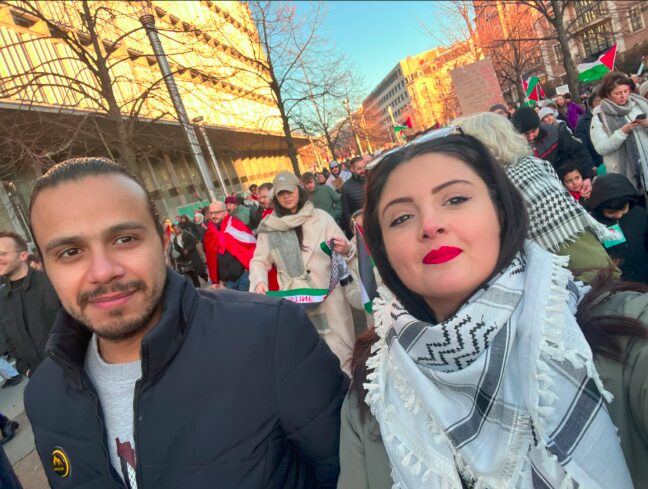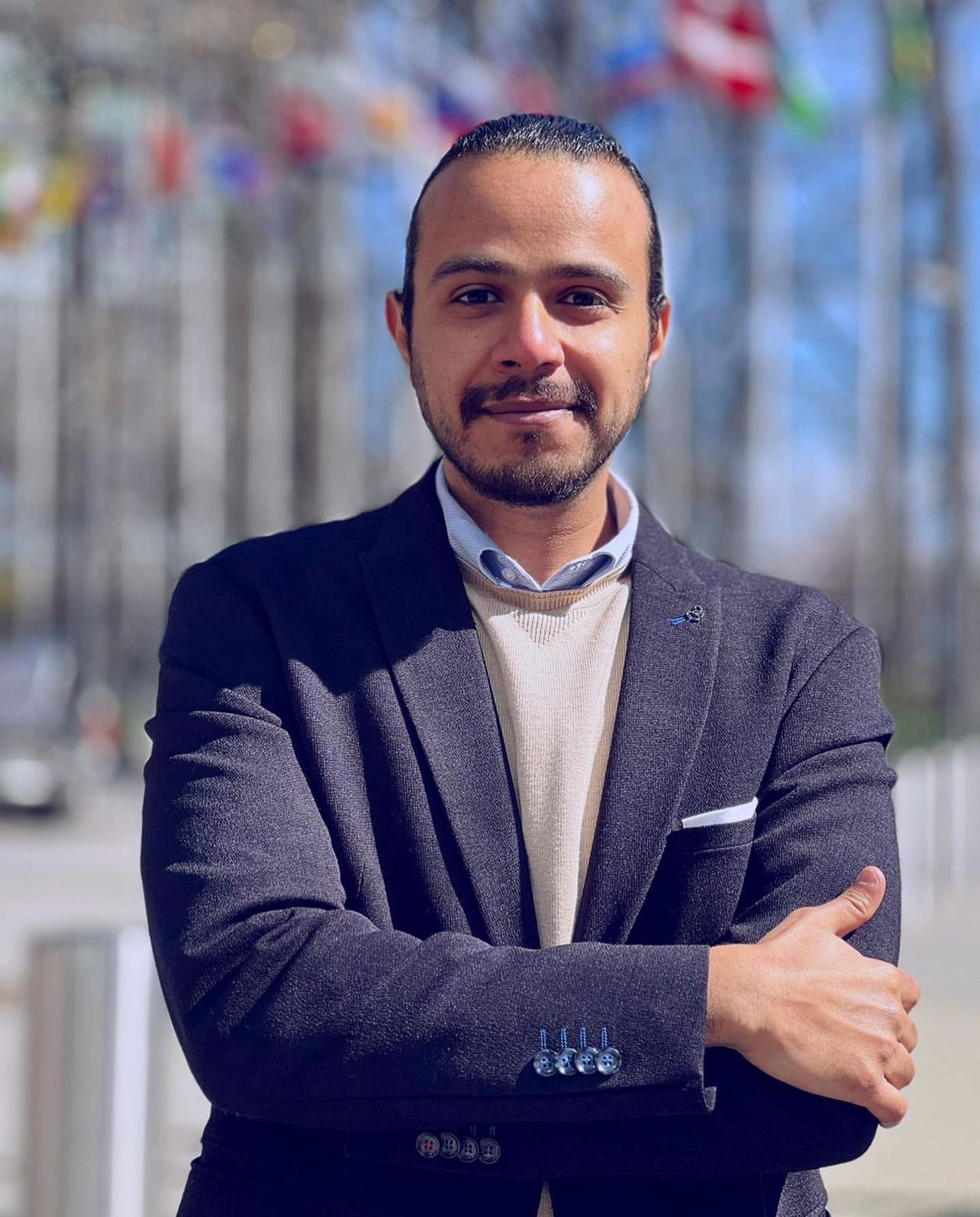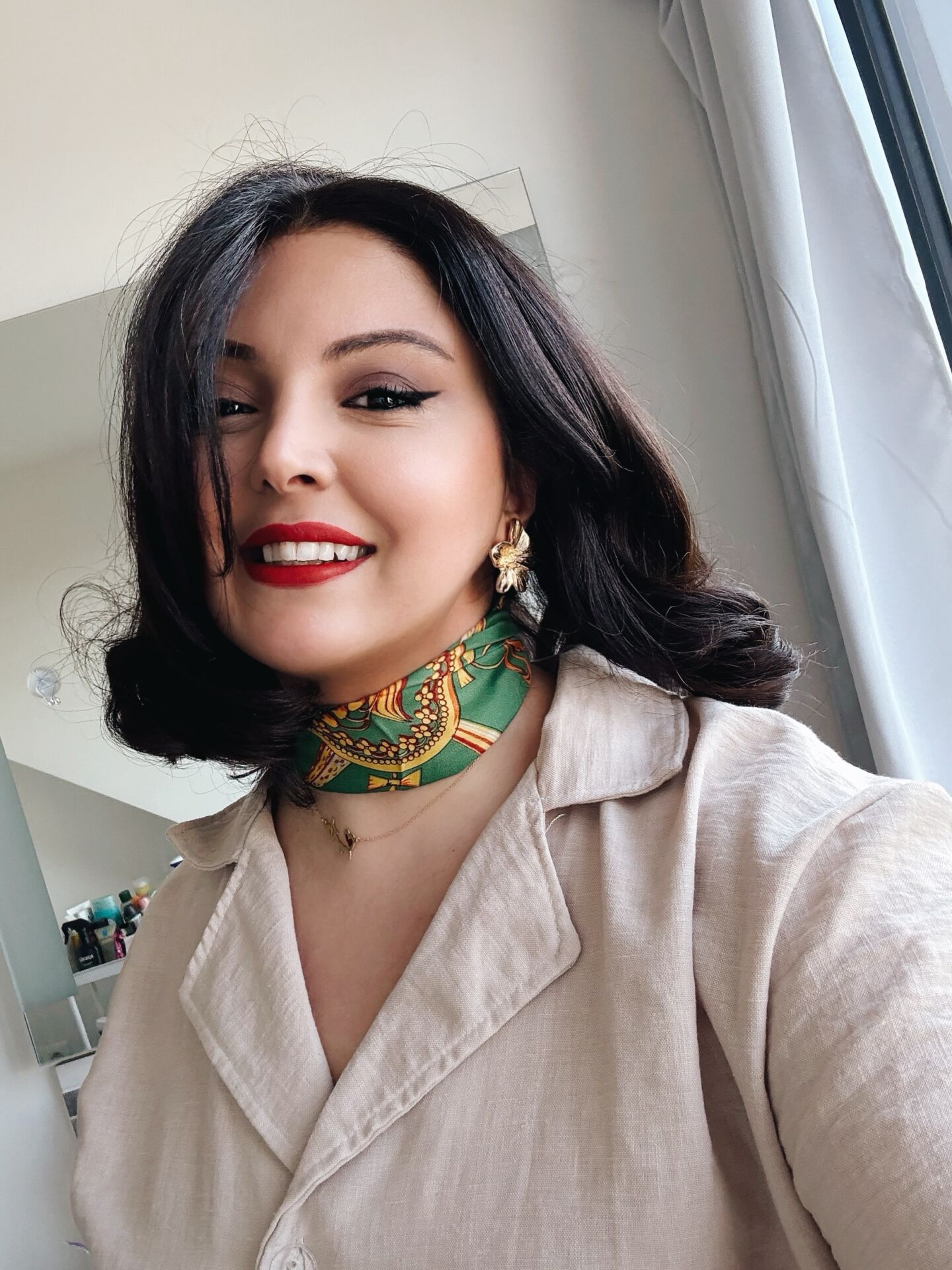
We’re really happy to share this interview, that took place some weeks ago in Brussels, a meeting point for researchers, NGOs, and human rights defenders. While here, we had the pleasure of sitting down with Mostafa and Sarah from HuMENA for Human Rights and Civic Engagement. Mostafa and Sara relocated to Brussels in late 2023, through a partnership between ProtectDefenders.eu’s Temporary Relocation Programme and EuroMed Rights who hosted Mostafa for a fellow for a year. Also thanks to EMHRF, who worked closely with the team at EMR to assist him, coordinate his relocation, and ultimately support his resettlement here.
What began as a formal conversation soon turned into a genuine catch-up among friends, reflecting on years of shared struggles, achievements, and hopes for the future. Together, we talked about exile, resilience, and the evolving landscape of human rights activism in and beyond the MENA region.
Mostafa, Despite being forced to leave Egypt, you’ve continued your work through HuMENA and other networks. How has being in exile affected your ability to advocate, organize, and lead human rights efforts?
The motivation to keep working, to protect civic space, help others, and find practical solutions is really what drives me in this situation. But the struggles are many. I can’t see my family, and over time I feel the connection thinning across borders—that’s the hardest cost of exile.
Sometimes I look back and ask whether I would make the same choices again. Then I remember these decisions let me keep doing the work I care about—defending rights and supporting HRDs—and build relationships I wouldn’t have had otherwise; I even met my wife along the way. Exile, in a way, has helped me create a new network and community.
At the same time, it’s difficult to think about those who are still in Egypt. Many have started to lose hope. We stay in contact, but I know how hard it is to keep working: many live isolated, under constant fear. Those who continue do so quietly and at risk, meeting in hidden spaces, writing anonymously, and researching without revealing their identities. There is still activism happening, but it’s complicated and risky.
Even in exile, organizing and meeting with others who come from the same context isn’t always easy. It can be challenging to maintain that sense of collective work and shared space.
 Mostafa and Sarah
Mostafa and Sarah
Through HuMENA, also with the “Activism in Exile ”program at HuMENA you’ve built regional and transnational networks that empower defenders and advocate for civic engagement in the MENA region. Do you have a specific example where this cross-border collaboration made a tangible difference?
Mostafa: The “Activism in Exile” project started as a response to the growing number of people forced to leave their countries, many of them activists who suddenly found themselves in exile. The idea came from a real gap: in exile, everything resets, you often don’t know where to start.
Back home, even though life was dangerous, people knew how to navigate the local context. In exile, everything changes, the systems, the networks, the support. That is why we designed Activism in Exile around four simple pillars: knowledge (toolkits), capacity (trainings), convening (diaspora forums), and advocacy (policy asks).
Through this program, we set out to build tools and spaces people can actually use. We began producing guides and resources about living and working in exile, launched awareness campaigns, and provided training, including on mental health. One key achievement was the first Egyptian Diaspora Forum (online), which brought together Egyptian HRDs in exile, CSOs, donors, academics, and journalists to connect, coordinate, and collaborate. It turned loose links into a working network, with city nodes coordinating across borders. Currently, we’re finalizing toolkits on rights activism in exile, artivism in exile, and gender and sexuality activism in exile, and our advocacy continues to focus on strengthening rights and recognition for defenders living abroad.
Sarah: Our early work helped seed one of the first organised MENA diaspora networks for HRDs in exile. Since then, we’ve kept the loop tight: train → convene → advocate, so momentum isn’t lost after each activity. After we started “Activism in Exile” project, other organizations from the region began doing the same.
One of the main issues we discovered early on was that many people didn’t even realize, or didn’t want to admit, that they were in exile. Back in 2020, for instance, most Egyptian HRDs abroad still thought of their situation as temporary; they told themselves they were just “in transit.” But without accepting exile, it’s very hard to build a community or a support system. So a big part of HuMENA’s work has been about acceptance, helping people recognize their situation, and turning it into collective strength through diaspora networks and advocacy.
We’ve also seen a gradual shift in how exile is perceived globally. In recent years, especially after the war in Ukraine, there’s been more attention and resources dedicated to exiled communities. Now, the conversation has evolved toward an “architecture of protection”, sustainable, long-term mechanisms for HRDs rather than short-term fixes.
For instance, most temporary relocation programs offer only three months of support, far too short for anyone to rebuild or even plan their next steps. What we need are longer-term solutions and stronger connections with organizations offering fellowships, trainings, and professional opportunities. In practice, we try to make that bridge real—linking training to placements/fellowships and onward advocacy, not a short stay ending in a dead end.
Another major issue is regional relocation. While moving to nearby countries like Lebanon might seem more practical, it’s not truly safe. Lebanon, for example, is not party to the 1951 Refugee Convention, and its passports offer no real protection. Although many international organizations have offices in Beirut, the country has effectively become a transit zone, not a place of safety. Life there might appear “normal” if one has work, but security is never guaranteed. For many defenders, relocation to the EU or Canada remains the most viable path, yet even that path is narrowing.
With increasing visa barriers, access to relocation or emergency protection programs is extremely difficult. Applications are often delayed, cancelled, or denied, leaving HRDs stranded in unsafe environments, sometimes even for years, unable to work or move forward. Many Egyptian defenders, for instance, get stuck in Lebanon, living in a kind of purgatory, at constant risk of deportation.
That’s why we’ve been advocating for a “bridge visa”, a short-term, six-month humanitarian visa that would allow HRDs at risk to move quickly and legally to a safe place, while longer-term solutions are arranged. The current system is broken; we need a humane, workable protection pathway for those who risk everything to defend human rights.
 Mostafa, how did your temporary relocation experience shape your understanding of what exiled defenders need most to continue their work?
Mostafa, how did your temporary relocation experience shape your understanding of what exiled defenders need most to continue their work?
I was fortunate, my temporary relocation allowed me to continue my career path. With the right support, I was able to focus on my work and rebuild some stability. But not everyone has the same experience. Many of my friends went through relocation programs that lasted only three months, which is far too short if not unsafe. In that time, it’s impossible to plan your next steps, rebuild your life, or even start thinking about the future.
Temporary relocation programmes need to be longer and better connected, they should link defenders to organisations that offer training, fellowships, and job opportunities. There are so many talented people, especially those working in artivism and creative activism, who don’t even know where to begin or how to connect with networks that could help them continue their work safely. Ideally, there should be simple practical resources, even a short brochure or toolkit explaining what services exist in the host country. Some countries have these tools, but others, including Belgium, still don’t.
Another crucial point is mental health, in fact support for mental health should be mandatory within relocation funds and programmes, for example, defenders should always know which organisations in their city can provide that kind of help. I remember last year a Palestinian family arrived in Brussels after fleeing the war, one of the first things they looked for was mental health support. They eventually found free care through Médecins Sans Frontières, which offers services to newcomers, but this shouldn’t depend on luck or personal research.
For human rights defenders, mental health support is non-negotiable. It’s not an extra, it’s essential to recovery, to rebuilding confidence, and to continuing their work in exile.
Mostafa and Sarah
Looking back on your years of activism, what moments or achievements stand out as the most meaningful to you?
Mostafa: What stands out the most to me are the moments when our work truly makes a difference in people’s lives. I remember last year in Tunisia, we worked on a local advocacy project that had a direct, positive impact on the community, people’s lives genuinely improved. That was one of the best moments. We also supported several defenders who needed to leave Tunisia and Egypt for their safety. One of them later founded a new organisation and is now working with the Tunisian diaspora. Seeing that kind of outcome, where someone not only rebuilds but also continues the struggle, is what gives meaning to everything we do.
I’ve learned a lot along the way, from both the challenges and the collaborations. For example, I’ve learned so much from organisations like ProtectDefenders.eu and others that accompany defenders in critical moments. When I see that someone we helped has found stability, or is able to continue their activism, that’s when I feel that my work is complete. For many of us from the MENA region, activism isn’t just a profession, it’s our life. When we see progress or hope in others, it’s personal too.
Sarah: Exile, for us, is not an aftermath; it’s a condition of constant reconfiguration, a space where defenders reinvent practice. It’s an ongoing process. Exile should not be reduced to only alienation; it can be a space of reinvention. What we need for exile to be understood as a transformative condition, one through which human rights defenders are creating new forms of activism and resilience. Protection mechanisms must evolve to reflect that reality. The aim isn’t dependency; it’s to equip exiled activists to lead, with tools, peers, and routes into policymaking.
In our latest research, we asked activists: “When do you stop calling yourself an exiled activist?” The answers were diverse, some said it would be when they marry or find stable work, but the majority said it would be the day they can visit their home country again, even for a single day. That says a lot about how exile shapes one’s identity. It also reminds us that belonging and safety are policy outcomes, not just personal milestones.
Another major achievement for us has been building recognition of the potential of exiled activists. Exile is a painful, difficult condition and too often, exiled defenders are seen only as victims, but that’s unfair and limiting. Exile should come with dignity, because those living it are not merely victims, they can be active agents of change and sources of new ideas.
Mostafa: We’ve spent years advocating with hundreds of organisations to encourage them to support exiled activists, to include capacity-building, mentorship, and long-term support programs in their protection efforts. Defenders arriving in exile need these tools not just to survive, but to continue leading change. That, I believe, is the next step in building a truly sustainable system of protection.
If we keep pairing evidence with coalitions and practical safeguards, exile won’t silence defenders, it will amplify them.
If you want to know more about this go and check this as well


